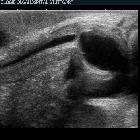urinary bladder diverticulum














A urinary bladder diverticulum (plural: diverticula) is an outpouching from the bladder wall, whereby mucosa herniates through the bladder wall. It may be solitary or multiple in nature and can vary considerably in size.
Epidemiology
There are two peaks; one at 10 years and the other at 60-70 years .
Pathology
Diverticula may be congenital (primary) or acquired (secondary) and a range of causes of urinary bladder diverticula are described.
Acquired diverticula are more common, usually occurring in the context of a trabeculated bladder, resulting from chronic bladder outlet obstruction.
Radiographic features
Diverticula are often an incidental finding on imaging investigations, including ultrasound, CT, MRI and IVU.
Treatment and prognosis
Complications
They may be associated with a range of complications due to stasis and low-grade infection including:
- intradiverticular transitional cell carcinoma 1-10%
- bladder stones
- bladder rupture
Siehe auch:
- Ehlers-Danlos syndrome
- Ureterozele
- prune belly syndrome
- Urethralklappe
- Menkes-Syndrom
- neurogene Blase
- Harnröhrenstriktur
- Williams-Beuren-Syndrom
- periureterales Divertikel der Harnblase (Hutch-Divertikel)
und weiter:

 Assoziationen und Differentialdiagnosen zu Harnblasendivertikel:
Assoziationen und Differentialdiagnosen zu Harnblasendivertikel:








